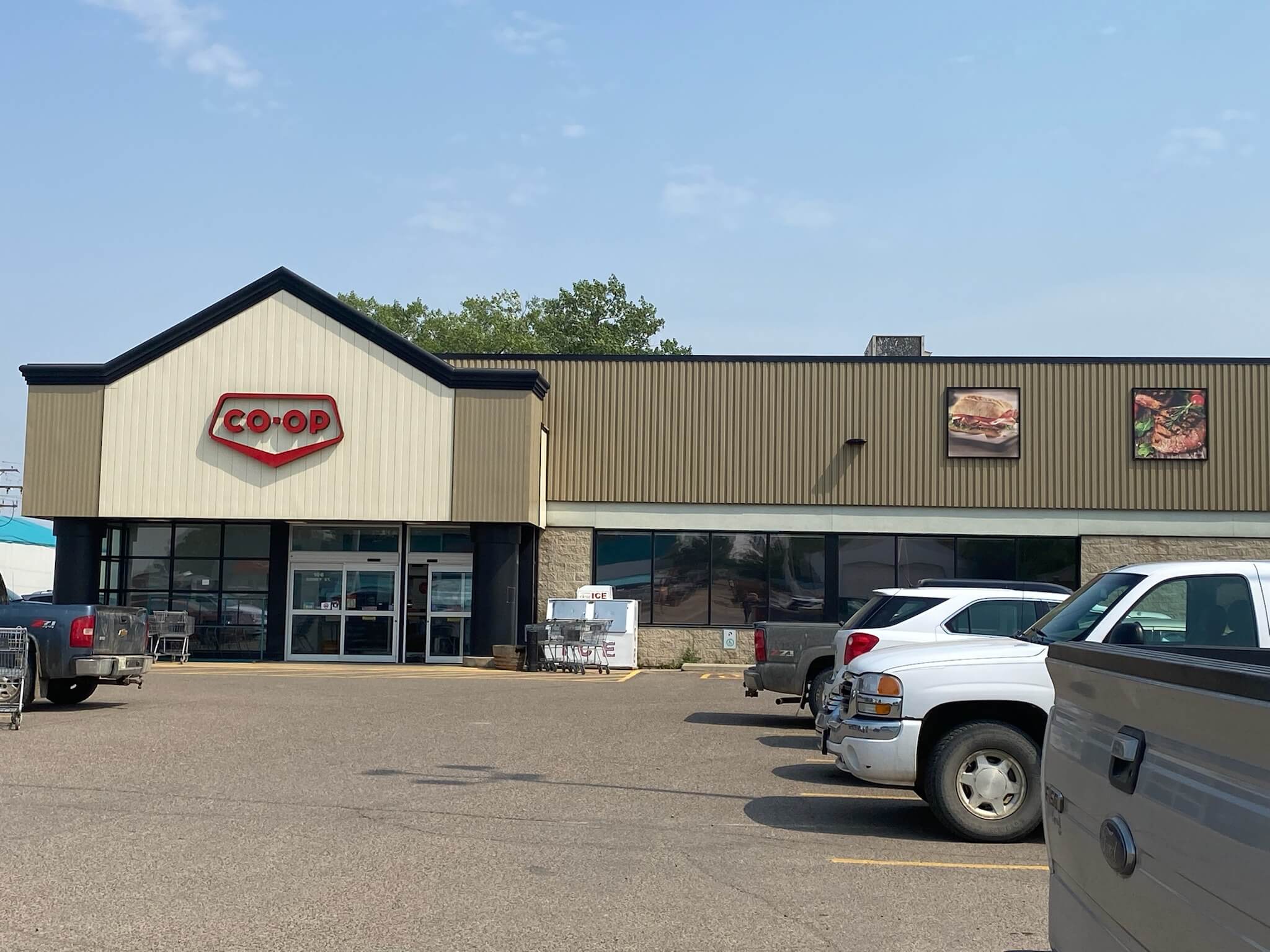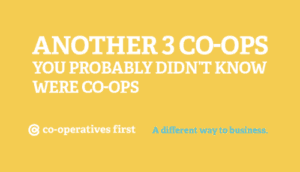People in rural and Indigenous communities know that access to goods and services isn’t a given. With small populations, it’s always been difficult to gain the diversity and quality of services that are available in cities.
But people committed to living in small communities find ways to meet their needs, even if governments and big business don’t think servicing rural places is worth their while. And co-ops have been a very effective way for people to create the businesses and services they need.
Take rural Alberta in the 1940s. Rural areas wanted electricity, but government thought it was too expensive to get so few people on the grid. So people got together and formed co-operatives known as Rural Electrification Associations to provide themselves with the power they wanted. Some of these, like Battle River Power Coop, are still around and doing great work.
Can people still use co-ops to get what they need? You bet. Here are a few more ways rural people use co-ops to step up and do it themselves:
Daycare
The federal government now has a policy to provide $10/day childcare, but communities everywhere need more daycare spaces so families can take advantage of that program.
That’s where co-ops come in.
By forming a daycare co-op, parents and other community members can create daycare spaces for themselves and apply for government funding to support the facility and its users.
This isn’t a new idea. Hundreds of parent-owned childcare co-operatives across Canada access this funding and ensure parents can enjoy affordable childcare. That’s what parents in Maple Creek, in southwest Saskatchewan, are doing. The co-op secured a $420,000 Space Development Grant in addition to $36,120 in start-up funding to support creating 42 new daycare spaces.
Groceries
Over the past year, the problems within Canada’s grocery industry have been the centre of attention as food prices have risen. Over 60 percent of our grocery market is dominated by three big corporations, which means all that profit is leaving the communities where those companies operate. Unless, that is, your town has a local Co-op grocery store.
Many small towns in western Canada are able to stay vibrant because Co-op stores are the only supplier of groceries in their communities – and because they’re locally owned, all the profits go back to the individual members and get invested in community initiatives.
But members of the Co-operative Retailing System aren’t the only examples of how co-ops can supply food to rural communities. Squamish Fresh was started by a group of young parents who wanted to supply better, more accessible produce in their region. Others have formed small, independent co-op stores or farmer’s markets. Co-ops are great for ensuring communities have access to the food they need.
Maintain local businesses
Just because big business has invested in your community doesn’t mean it’s reliable or sustainable. The town of Westlock in central Alberta learned the hard way that when things get tough, companies put the bottom line first.
In the early 2000s, Agricore wanted to consolidate its operations in major centres like Edmonton. This meant shutting down their grain terminals in places Westlock and forcing farmers to truck their grain over an hour to get it to market.
Did the community just shrug its shoulders and allow this economically-important business to disappear? Absolutely not. In 2002, over 270 community members formed the Westlock Terminals New Generation Co-op. Together, members invested $1.2 million to buy the terminal from Agricore and begin accepting grain from farmers the following harvest.
Westlock’s mayor, Ralph Leriger, said this DIY spirit is typical of Alberta — and of co-operatives.
“It’s a symptom of when people need something, they make it happen,” he said. “I think Albertans are entrepreneurial and not those that will sit around and wait for someone or government to do it for them. If you want to make your community a better place, then you get up off your backside and you make it happen. And, really, isn’t that the essence of a co-operative?”
Is a DIY solution right for your community?
There’s opportunity out there. And, if we want to address the challenges facing our communities, we need to be the ones who find solutions. A DIY approach to business or economic development might feel unconventional, but it’s what we need to help our communities thrive. Whether it’s childcare, grain handling, or affordable housing, why wait for government or big business?
Are you ready to try a DIY solution? At Co-operatives First we help people just like you. We’ve got the resources and expertise to help you start a co-op and capture that opportunity.

 Written by
Written by 


